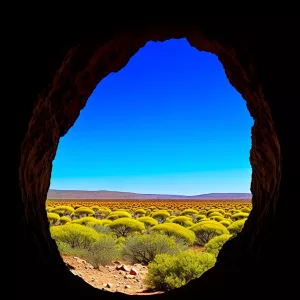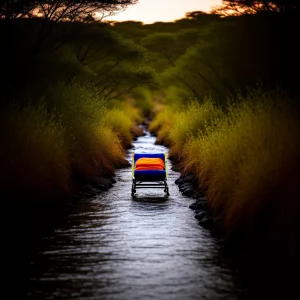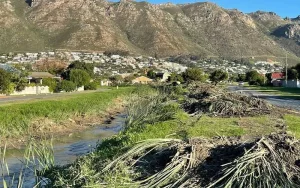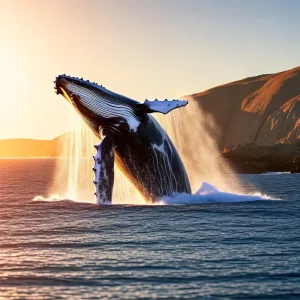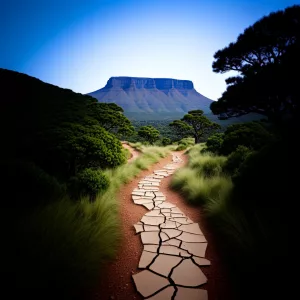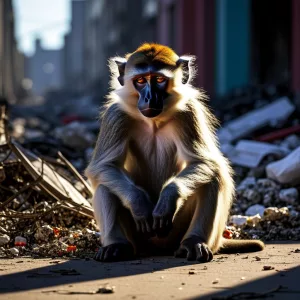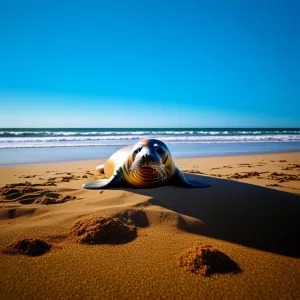Every spring, Namaqualand in South Africa turns into a magical wildflower wonderland. Millions of colorful flowers, especially bright orange Namaqua daisies, burst from the dry earth, painting the land in stunning shades of yellow, purple, and pink. Visitors from all over come to Namaqua National Park and nearby reserves to walk among these vibrant flower carpets and watch bees and birds dance in the warm sunlight. This brief, dazzling bloom feels like nature’s grand show, reminding everyone of the beauty that can spring from even the driest places.
The Cape near Cape Town hides magical caves full of ancient stories and wild beauty. From the easy twists of Boomslang Cave to the deep, dark mystery of Tartarus, each cave invites adventurers to explore nature’s hidden world. Peers Cave reveals echoes of humans from 13,000 years ago, while Klipgat holds treasures by the sea, where whales swim nearby. Elephant’s Eye Cave offers stunning views high on the mountain, blending nature and legend. Together, these caves whisper secrets of the past and spark wonder in every visitor brave enough to enter.
Aquila Private Game Reserve and Spa, near Cape Town, is a stunning place where visitors can see Africa’s famous Big Five animals up close. Set in the wild and beautiful Karoo region, it offers thrilling safaris, horseback rides, and relaxing spa treatments. Families are warmly welcomed, with fun and learning for kids, while everyone enjoys cozy lodges and starry nights by the fire. Aquila blends wild adventure with comfort and cares deeply about protecting nature and helping local communities. It’s a perfect way to experience South Africa’s wild heart and peaceful spirit.
Across South Africa’s wide, sunlit farms, Foot and Mouth Disease (FMD) threatens the cattle that many families depend on for their lives and work. To fight back, the country is vaccinating hundreds of thousands of animals with vaccines made right at home, spending big on research, and tightening safety rules at markets. Farmers, scientists, and the government are joining hands, sharing knowledge and hope to stop the virus from spreading. This united effort is not just about saving animals—it’s about protecting jobs, communities, and the soul of South Africa’s farming heartland.
Deep in South Africa’s mysterious Knysna Forest roams the last Knysna elephant, a strong and lonely female who carries the memory of a vanished herd. She moves quietly beneath towering trees, a living symbol of survival and loss, reminding us how nature can shrink but still hold hope. Thanks to hidden cameras, people have glimpsed her rare steps, inspiring efforts to protect her and the forest she calls home. Her story teaches us to respect wild places and cherish the fragile life that still lingers within them.
In the wild Western Cape, breathtaking beauty meets real danger, where hikers sometimes get lost or hurt. Last weekend, brave rescue teams worked fast, helping people stuck on rugged trails, giving medical care, and guiding them safely back. From mountain climbs to deep forests, these rescuers show courage and teamwork, turning scary moments into stories of hope and survival. Their skill and heart keep adventurers safe in nature’s stunning but unpredictable playground.
Cape Town has created a clear boundary called the Urban Development Edge to guide where the city can grow without harming nature. This smart plan helps the city grow while protecting important lands like wetlands and farms. It also makes building new homes and roads faster and easier, as long as sensitive areas stay safe. By working together with many people, Cape Town is leading the way in balancing urban growth with caring for the environment. This new approach invites everyone to help shape a city that grows smartly and stays beautiful.
Continuous Efforts and Quiet Guardianship: The Ongoing Maintenance of Sir Lowry’s Pass River
The Sir Lowry’s Pass River is carefully cared for through regular cleaning and repairs to keep the river healthy and safe. Teams remove harmful plants, trash, and silt to stop floods and help native plants and animals grow. This work protects the environment and keeps local communities like Gordon’s Bay safe and happy. People of all ages join in, learning to love and look after the river so it can keep flowing strong for years to come.
From July to November, the Cape’s coast bursts to life as giant southern right whales return to its sheltered bays. Visitors can watch these majestic creatures breach, play with calves, and glide close to shore, creating unforgettable moments. Guided tours, boat trips, and storytelling bring the whales’ ancient journey alive, mixing thrilling wildlife encounters with local culture and history. This magical season not only celebrates nature’s wonders but also shines a light on conservation and community, making whale watching in the Cape a truly special experience.
Drones are not allowed to fly over Signal Hill and Table Mountain National Park unless you have special permission. This rule helps protect animals and plants, and keeps visitors safe, especially after dark when wildlife is active. While drones can help scientists study nature, flying them without approval can disturb animals and break the law. The park asks everyone to respect these rules so its beauty and wildlife stay safe for the future.
Dogs like Delta and their human partners work together to find the rare geometric tortoise hiding in South Africa’s fynbos. Using their amazing noses, these dogs sniff out tiny, camouflaged tortoises faster and better than people alone. Each tortoise they find helps scientists learn more about protecting this endangered species and its shrinking home. This special teamwork gives hope that even small creatures can survive when people and animals join forces to save them.
Table Mountain, Cape Town’s proud and famous landmark, is facing serious problems. Trails are crumbling, crime is rising, and invasive plants are choking its natural beauty because of poor care and not enough money from SANParks. Local groups and nature lovers are fighting hard for more funding, better safety, and proper upkeep to protect the mountain. They want this symbol of the city to stay strong and safe for everyone to enjoy now and in the future.
South Africa’s rivers quietly carry more than water—they now flow with traces of lifesaving HIV medicines called antiretroviral drugs (ARVs). These drugs enter rivers through wastewater and disturb the delicate balance of aquatic life, from tiny snails to helpful bacteria. Although these medicines heal people, their presence in water poses new risks that current treatment plants struggle to remove. Scientists warn that protecting both human health and nature requires better technology, stronger rules, and teamwork to keep these vital rivers safe for the future.
In Ocean View, Cape Town, a shocking video showed a group of men cruelly killing a baboon, causing a wave of anger and sadness across the community. The SPCA and local authorities quickly launched an investigation, offering a reward for information to catch those responsible. This tragic event sparked a strong call for justice and deeper reflection on how people and wildlife can live together peacefully. The community’s response highlights the urgent need for kindness, protection, and shared responsibility toward animals.
Wilderness Search and Rescue (WSAR) in the Western Cape is a brave group of volunteers who help hikers and adventurers in trouble among the wild mountains and forests. Using teamwork, training, and new technology, they respond quickly and free of charge to emergencies, often saving lives. Whether it’s a lost group, an injury, or sudden bad weather, WSAR shows how courage and community come together to keep explorers safe in nature’s tough playground.
Columbo is a young southern elephant seal who surprised everyone by visiting Victoria Bay, South Africa. His rare appearance drew lots of attention and sparked a strong community effort to protect him and his kind. People learned to keep their distance and respect wildlife, showing how a town can come together to care for nature. Watching Columbo rest and play gave everyone a special chance to see the wild ocean life up close. His visit reminds us how important it is to protect animals and live in harmony with the natural world.


